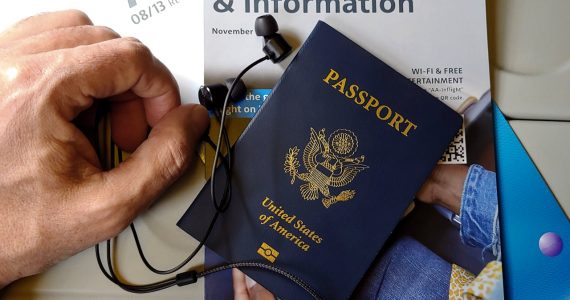President Donald Trump’s 2025 address to Congress signaled a shift that could reshape family law across the country. His administration’s policies reflect a strong push toward traditional values, affecting legal proceedings on gender identity, citizenship, and same-sex marriage.
These changes could significantly impact custody disputes, parental rights, and broader legal definitions in family courts.
‘Gender’ Gets Redefined Under Trump’s Presidency
Trump’s administration reinforces the view that gender is strictly male or female. Policies limiting legal recognition of transgender individuals could shape family law cases, especially in custody battles where a child’s gender identity is a factor. Courts may align with these policies.
This makes it harder for transgender parents or children to have their identities legally recognized. As legal definitions narrow, nonbinary and transgender individuals may find themselves excluded from certain parental rights and legal protections.

Custody disputes may increasingly weigh a parent’s stance on gender issues, affecting the legal standing of parents who support gender-affirming care. If federal funding is pulled from institutions that recognize gender diversity, families may struggle to access legal support for transgender children.
Restricts Birthright Citizenship
Trump’s administration is also targeting birthright citizenship, aiming to block automatic U.S. citizenship for children of non-citizen parents. This change would add layers of legal uncertainty for families with mixed immigration status, affecting child custody and parental rights.
If enforced, this policy could strip children of legal protections, making family law cases involving residency and guardianship more complex.
Families who have lived in the U.S. for generations may suddenly find their children classified as non-citizens. In turn, this can lead to a rise in deportation cases, affecting family stability.
Without birthright citizenship, many families could face separation or lengthy legal battles to secure their children’s status. Custody disputes could become entangled with immigration proceedings, increasing the risk of family separation. This would force family courts to navigate new legal territory, creating challenges for judges and attorneys handling these cases.
Same-Sex Marriage and Parental Rights
Although same-sex marriage remains legal, concerns are growing over its future under Trump’s administration. With conservative judges in key courts, legal challenges to marriage equality could arise. If protections weaken, family law cases involving same-sex couples could become more complicated, especially in adoption and custody battles.

Same-sex parents might face hurdles in securing parental rights, particularly in states with restrictive adoption laws. Courts might lean toward biological parental preference in custody disputes if the administration pursues policies favoring traditional family structures. This shift could impact legal protections for same-sex couples, making family law a battleground for LGBTQ+ rights.
Future rulings could challenge the parental legitimacy of non-biological LGBTQ+ parents, placing children at the center of lengthy legal disputes. These legal challenges could erode the progress made in family law over the past decade.
Family Law Might Become More Conservative
Trump’s policies signal a return to conservative interpretations of family law. Gender identity, citizenship status, and same-sex marriage will likely become central issues in courts across the country. Legal professionals and families will need to stay informed as policies evolve, shaping the future of family law for years to come.
As new legal battles emerge, the outcome of these debates will shape individual families and impact the nation’s broader approach to civil rights and family protections. Whether these policies hold up in court will determine the direction of family law in the years ahead.




